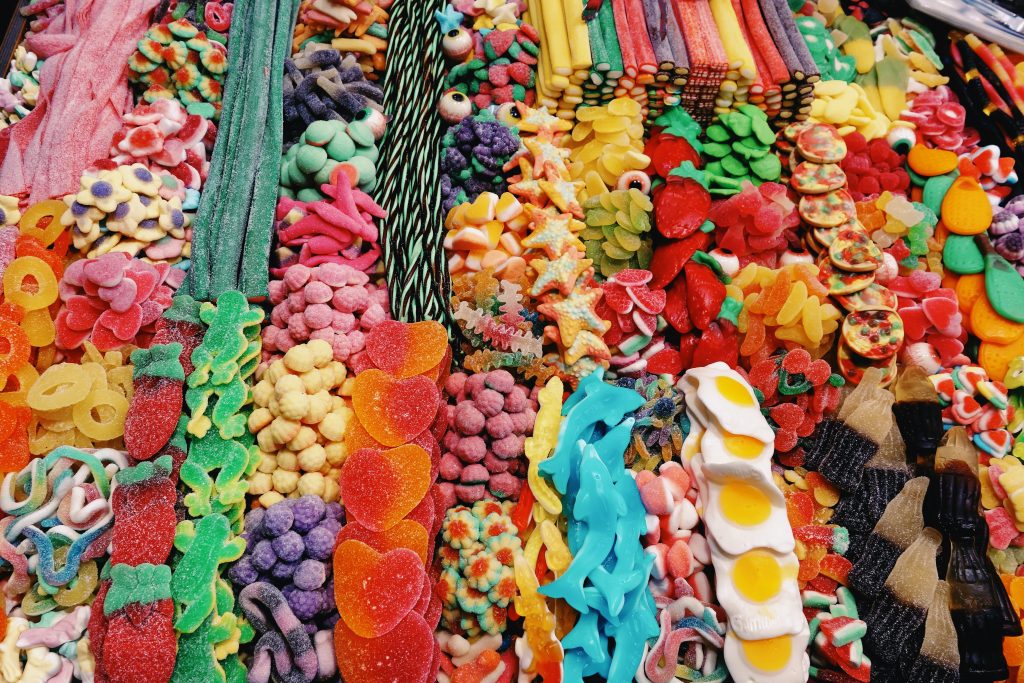Food addiction is as real as drug or alcohol addictions. In some cases, it may require therapy sessions or visiting support groups, which are integral parts of any addiction treatment.

Similar to cocaine addiction symptoms or any other drug addiction symptoms, food addiction is characterized by an inability to stop eating certain foods, even when you are already aware of the harm that they cause to your body. After all, food addiction may lead to severe health problems, such as obesity or diabetes.
Thus, it is vital to educate yourself and know which foods are addictive in order to prevent food addiction from developing. Below, you will find more information about this type of addiction alongside a list of the most addictive foods. Read on and stay healthy!
What Is Food Addiction?
Food addiction is an uncontrollable craving for certain foods. It is very similar to drug and alcohol addiction as all of these are characterized by a loss of control over your own eating habits. Unlike food cravings, food addiction is much more serious and can lead to severe health problems, such as obesity or diabetes.
In most cases, the addiction is not caused by one specific food but by a combination of them. These include processed foods that contain high amounts of sugar, unhealthy fats, and salt, which together make a combination that is highly addictive.
The most common symptoms of food addiction include:
- a strong craving for certain types of foods,
- trying to eat certain foods in secret,
- getting anxious when you are unable to consume your favorite foods,
- eating more than you need to satisfy your cravings,
- having trouble controlling your eating behavior,
- spending a lot of time thinking about the next time you will be able to consume your favorite foods.
If you experience such symptoms regularly, it may be a sign that you have developed an addiction to food.
How Do You Treat Food Addiction?
Do you believe that your eating behavior borders on addiction? If your answer is yes, then it is very important that you see a professional nutritionist or a counselor. Once you do that, you can establish whether you have an actual food addiction or just a simple food craving.
The latter will not require any treatment or therapy. If it is an addiction, you will need to seek professional help from an eating disorder specialist to get rid of this dangerous disorder.
Usually, the treatment involves a combination of methods, including education on healthy eating habits and the use of supplements that can help lessen your food cravings without causing any side effects.
What Are the Most Addictive Foods?
Below, you will find a list of the most addictive foods that you should not consume if you do not want to develop a food addiction. It might be a pretty difficult task, but it is definitely worth your time and effort!
Sugar-Filled Soft Drinks
Soft drinks are one of the largest sources of calories in the diets of many people. In spite of the fact that most soft drinks do not contain caffeine or artificial sweeteners, which are often blamed for causing food cravings, they still contain high amounts of sugar that could trigger addictive eating behavior in some people.
Thus, if you suffer from sugar cravings or binge eating, cutting down on your consumption of soft drinks is a smart idea. Other beverages that are high in sugar include fruit juices, sports drinks, and energy drinks.
Highly Processed Meals
Many fast-food restaurants offer meals that are high in calories but low in nutrients. Why are they low in nutrients? Because they are made using highly processed ingredients. The same goes for numerous ready-made meals. If you really want to stay healthy, avoiding such foods is your best bet.
Breakfast Cereals
Many breakfast cereals are high in sugar and should be avoided by anyone who has food addictions or binge eating tendencies. On top of that, they contain unhealthy fats and trans fats, the consumption of which can lead to an increased risk of heart disease.
Sugary Energy Bars
Thanks to their high protein content, energy bars tend to be promoted as healthy alternatives to traditional candy bars. However, energy bars are often loaded with sugar, which makes them just as addictive and unhealthy as regular candy bars.
Frozen Lunches
Frozen lunches that are often sold in supermarkets may look like a very healthy alternative to fast food meals. Sadly, they are just as bad for your health, as they are usually loaded with unhealthy fats and sugar.
Sugar-Free Candy Products
Many people think that sugar-free candies are healthy because they do not contain sugar, but this is not always true. Many manufacturers add artificial sweeteners or sugar substitutes to their products, which could cause food addiction in some people.
In Conclusion
In conclusion, food addiction can be just as serious as addiction to alcohol or drugs. In addition to that, it can be just as dangerous to your health, as it is likely to put you at an increased risk of developing diabetes and heart disease.
If either you or your loved one is showing symptoms of food addiction, you should contact a professional counselor. Once you do that, you should be able to determine whether it really is food addiction and what the treatment is going to look like.
It might be difficult to admit that you have a problem. However, it is the first step that you will need to take if you want to recover.
















Add Your Comment